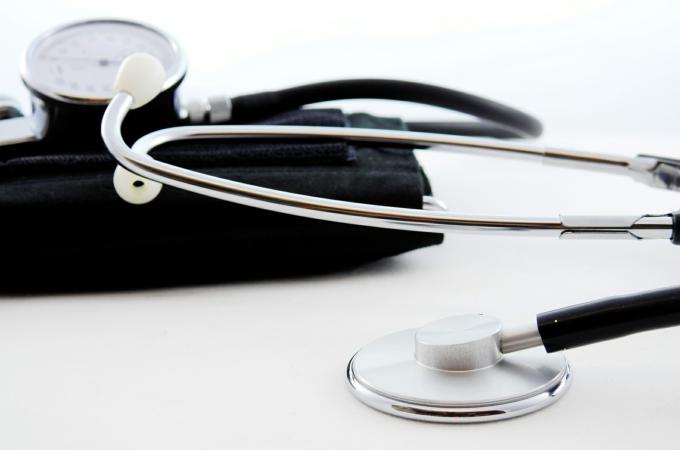Faith community nurses integrate faith and health care
BRAINTREE -- The term "parish nurse" may conjure images of blood pressure screenings in the back of a church after Mass, but their role can be so much more than that, says faith community nursing educator Karen Wenger.
Wenger first heard the term "parish nursing" in the early 2000s while studying for her bachelor's degree in nursing. She was attending Emmanuel College part-time while raising her three young children. When she heard that she could graduate with distinction in her field by completing an extra project, she decided to create a nursing program in her parish.
"The premise is that we, as nurses, take our nursing knowledge and we take our faith basis and we kind of pull the two together to minister to anybody within and external to our parish," Wenger told The Pilot last year.
The concept of "parish nursing," later termed "faith community nursing," originated in Chicago in the 1980s with a Lutheran minister named Granger Westberg. He envisioned nurses serving in a variety of roles: training volunteers, developing support groups, and acting as personal health counselors, health educators, referral agents, health advocates, and integrators of faith and health.
"He realized that the doctors were caring for the patients' physical needs, the chaplains were caring for their spiritual needs, and it was the nurses who kind of bounced back and forth between the two," Wenger said.
Westberg piloted his "parish nursing" program with six nurses in the Chicago area, and since then, his model has spread around the world. The Archdiocese of Boston is one of the Westberg Institute's educational partners, which means it receives a standardized curriculum that is updated every five years based on current research and best practices. Each module in the curriculum covers a different aspect of parish nursing, such as spiritual care, legal aspects, loss and grief, and behavioral health.
Wenger herself became a parish nurse in 2004 and said that about 70 nurses have gone through the archdiocese's faith community nursing program. Together they have over 250 years of experience.
Given the onset of the coronavirus pandemic in early 2020, "It's really unfortunate that parish nursing hasn't been utilized more through the year," Wenger said, speaking to The Pilot in January.
Wenger said she thinks that "one of the biggest barriers" to parish nursing, both before and during the pandemic, has been the misconception of what their role entails and, as a result of this, a lack of support from the clergy.
"A lot of people think parish nursing means taking blood pressures at church. And because, of course, we can't do that (during the pandemic), there's an assumption that there's no need for parish nurses. And I really think that couldn't be farther from the truth," she said.
Before the pandemic, parish nurses in the archdiocese were involved with many different types of activities. They run support groups, hold workshops, do bereavement work, and contribute educational materials in parish bulletins. They collaborate with pro-life organizations like Friends of the Unborn and archdiocesan ministries like the Initiative for Palliative Care. They can accompany people to doctors' appointments and accompany priests on home and hospital visits. And yes, they can also take blood pressure and vital signs, saving people the expense of a doctor's appointment.
Over the course of her career, Wenger has seen many people come into emergency rooms with conditions that are not emergencies, but rather lifestyle management issues that could be better addressed at home. Having a nurse in their community of faith, a place where they feel safe and loved, can help them address those problems.
"There's so much that we can help people within our parishes that can keep them out of the emergency room," Wenger said.
She recalled an experience with an usher at her church, who asked her to examine something on his leg. It was infected, and she told him to see his primary physician. He had not seen his doctor for some years. So, after getting a diagnosis, he also had a physical, during which they discovered he had diabetes.
When he struggled to manage his blood sugar, he and Wenger spent two Sundays in a row talking about strategies for tracking it. She taught him many of the same things as his diabetes nurse educator, but with her, she said, he felt motivated because the coaching took place where he felt safe.
"It was just ministering to him, putting him in a place where he was comfortable," Wenger said.
Parish nurses have found different ways to serve their communities during the pandemic. Some have been involved with ushering, temperature checks, and cleaning before and after Masses. Some have been putting notices in their parish bulletins to educate people about masks, handwashing, coronavirus statistics, and the forthcoming vaccines. Some are ministering remotely to the homebound. The Family Healing and Recovery Ministry, which used to meet at three different sites, now live streams its meetings, allowing them to reach hundreds of people.
Wenger has kept in touch with the parish nurses of the archdiocese, emailing them every few weeks and sending them prayers, reflections, and information.
She said she has been hearing back from people who usually do not respond, thanking her and sometimes opening up about the toll that the pandemic has taken on their own mental health.
She also keeps in touch with former and current colleagues, who vent to her about the difficulties of caring for the sick and dying during this time.
"If you have to go to a hospital, just be kind. Be kind to them. They're working harder than they've ever worked," Wenger said.
More information about the Archdiocese of Boston's Faith Community Health and Nursing Ministry can be found at www.bostoncatholic.org/chaplaincy-programs/parishnursing.



















